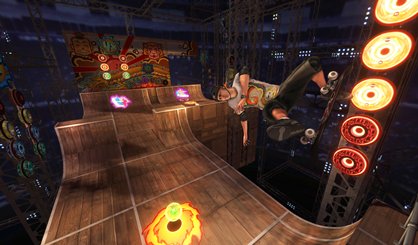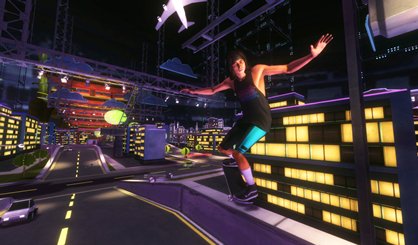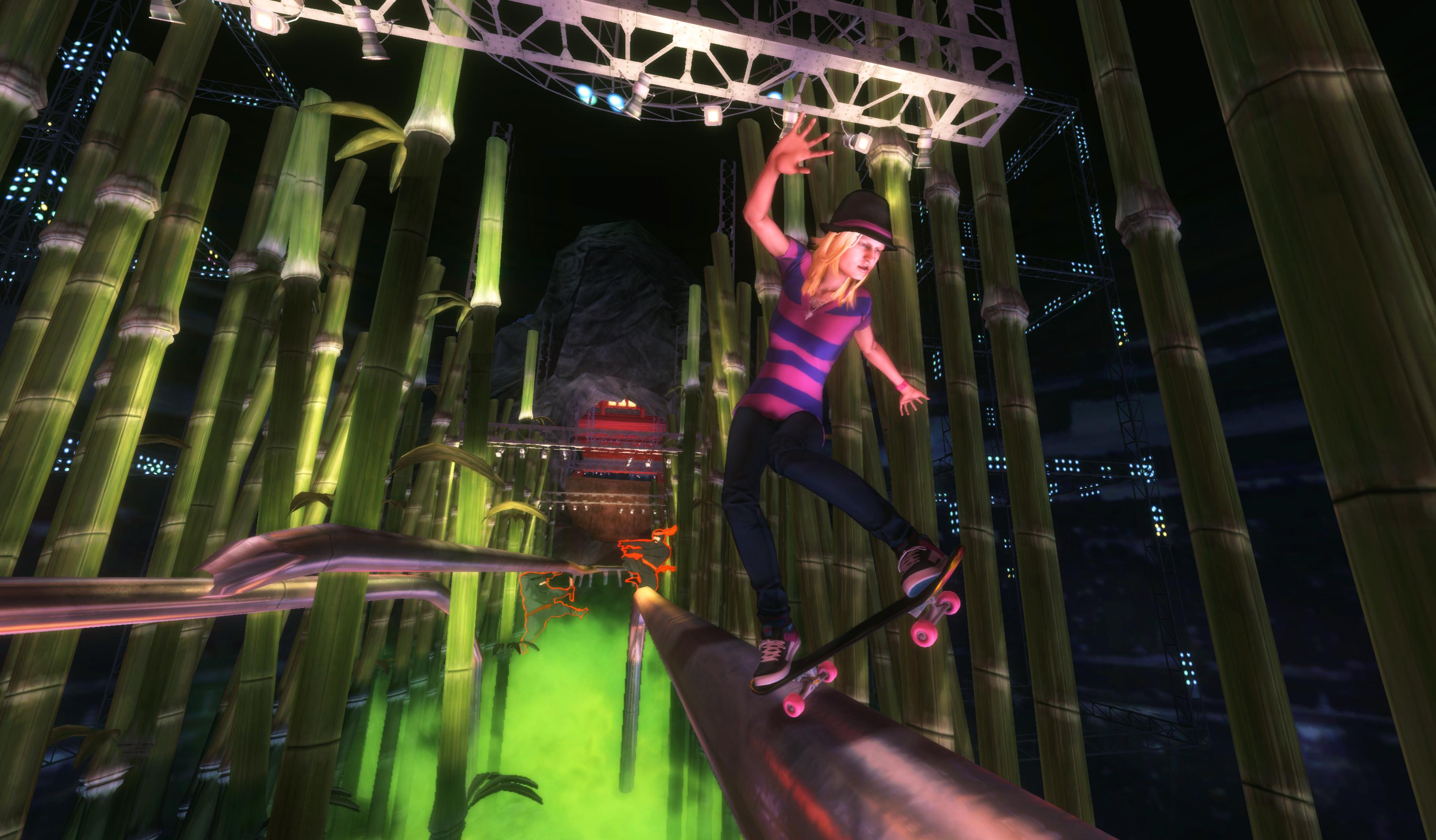GamesRadar+ Verdict
Pros
- +
Cool soundtrack
- +
Kicking the board across the room
- +
Listening to Tony and pals jibber-jabber
Cons
- -
Ridiculously long load times
- -
Imprecise skateboard controls
- -
Cramped level designs
Why you can trust GamesRadar+
Sometimes making a game more realistic isn%26rsquo;t always the best way to go. Learning how to skateboard in real life is an exhausting, frustrating, and frequently painful experience. In that regard, Tony Hawk: Ride manages to hit the reality nail on the head. You might not crack your face open on the concrete or get de-balled by a freak rail-grind slip, but this awkward exercise in fake skateboarding is wonky enough to make even the most devout Tony Hawk game fans yearn for a return to the days of button mashing combos.

Instead of using a huge piece of expensive plastic to enhance what could have been a pretty awesome Tony Hawk game, the development team chose to tailor the entire game around a huge piece of expensive plastic. The result is a gimmicky-as-hell title that%26rsquo;s certainly not a step forward for the franchise, as much as it tries to be. The sturdy, wheel-less skateboard peripheral that serves as the sole means of input for Ride is a deceptive beast. It%26rsquo;s hefty, looks sleek, and just feels right %26ndash; at least before you sync it up and start trying to %26ldquo;skate%26rdquo; on it.
Most moves can be pulled off by kicking the nose into the air and then quickly tilting or swiveling the board around in some odd direction. You can pop your hand out to one of the four visual sensors on the thing to perform a grab trick, and manuals are accomplished by tilting the board forward or backward with a slower motion. Half of the time, you%26rsquo;ll mostly wind up executing random tricks by sort of flailing around and kicking at the darned thing in earnest. The biggest problems arise when you simply try to steer straight and keep your balance. Be prepared to face-plant into the concrete often. On the %26ldquo;confident%26rdquo; (medium) difficulty setting, you%26rsquo;ll have to worry about executing tricks and tilt-steering. The easier casual mode is essentially an on-rails version that only has you worrying about tricks, and the hardcore mode is excruciating at best.
Each stop in the handful of major cities you%26rsquo;ll skate in sports three main modes to check out to earn points and unlock subsequent levels, and there%26rsquo;s a free skate mode for those who feel like trying to roam around the tightly linear level designs. Speed runs send you careening towards the end of each course as fast as possible, trick runs have you pulling off moves to score big before time runs out, and challenge mode requires you to complete strict sequences of tricks. While the first two modes are about what you%26rsquo;d expect, the challenges are particularly frustrating due to the ambiguous nature of some maneuvers and the inevitable trouble you%26rsquo;ll have steering and lining up your tricks.

Where earlier Tony Hawk games had extremely complex and precise combo systems for pulling off a wide variety of tricks, Ride condenses moves into a few different motions that are easy to confuse and often hard to pull off. Whether you%26rsquo;re a skater wannabe or the real deal, Tony Hawk: Ride%26rsquo;s imprecise attempt at blurring the line between virtual skating and actual skateboarding will leave you feeling slighted. In the end, it%26rsquo;s a cool experiment, but it quickly goes horribly wrong.
Nov 23, 2009
More info
| Genre | Sports |
| Description | An unusual and pricey experiment winds up sucking the soul out of this storied skateboarding franchise. |
| Franchise name | Tony Hawk |
| UK franchise name | Tony Hawk |
| Platform | "Xbox 360","PS3","Wii" |
| US censor rating | "Everyone 10+","Everyone 10+","Everyone 10+" |
| UK censor rating | "Rating Pending","Rating Pending","Rating Pending" |
| Release date | 1 January 1970 (US), 1 January 1970 (UK) |



